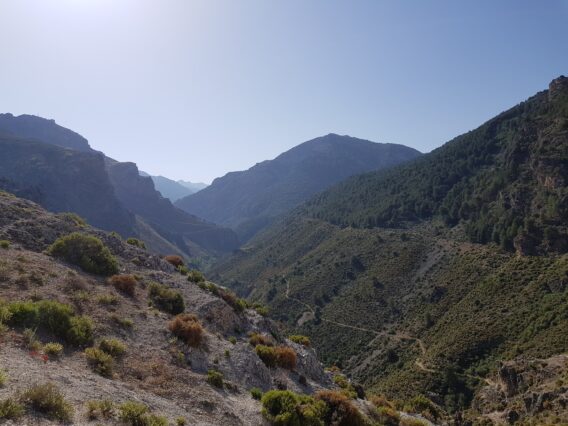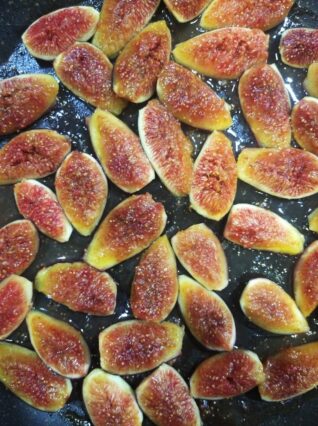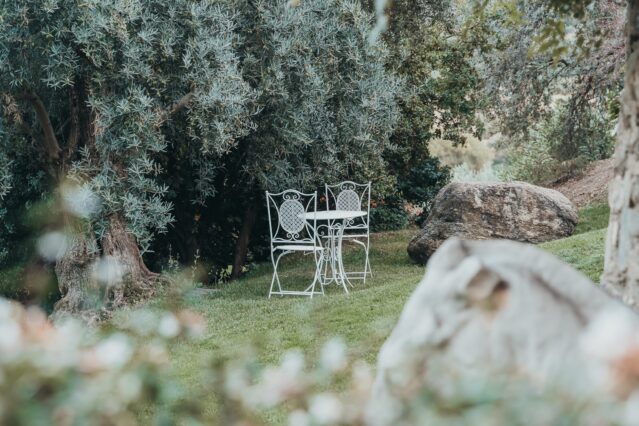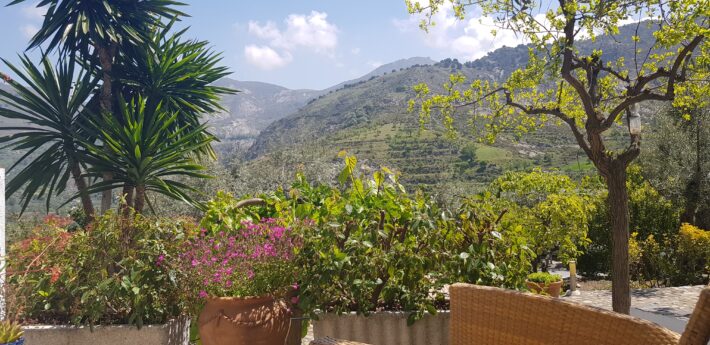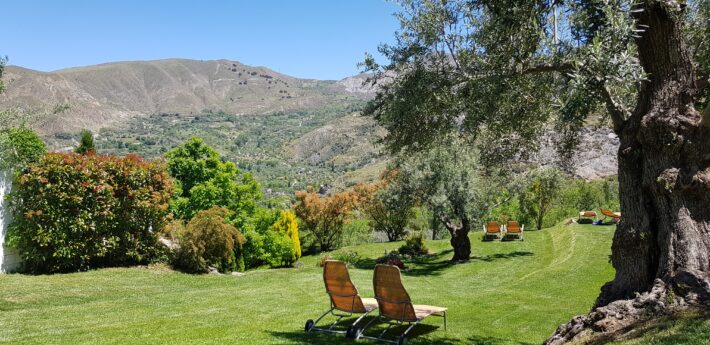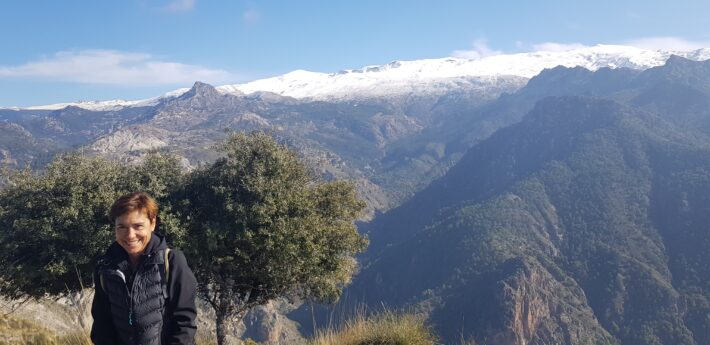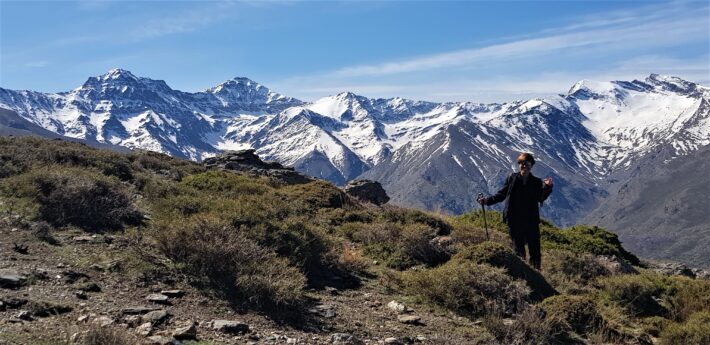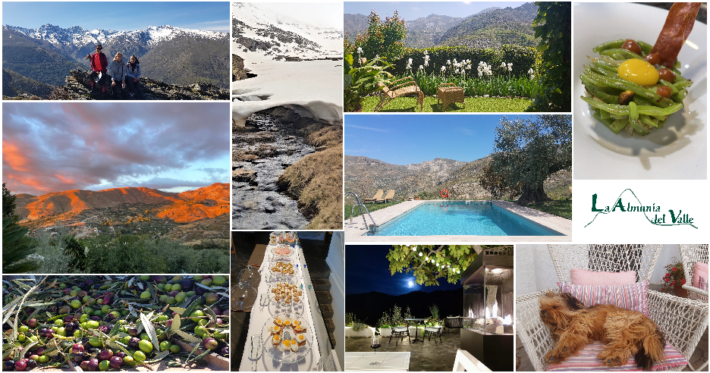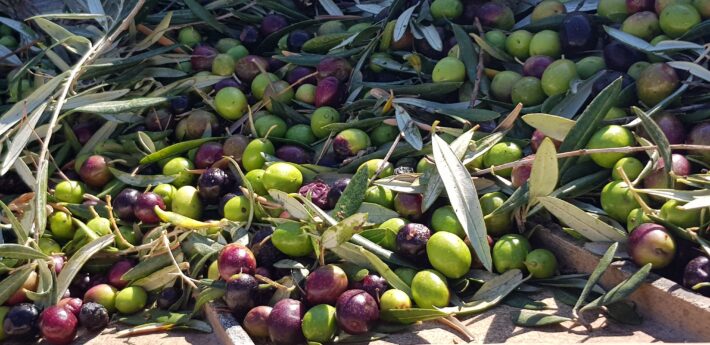La Almunia del Valle has a strong commitment to sustainable tourism.
According to the World Tourism Organization, sustainable tourism is defined as "Tourism that takes full account of its current and future economic, social and environmental impacts, addressing the needs of visitors, the industry, the environment and host communities"
In this line, La Almunia del Valle actively promotes sustainable tourism that strives to conserve the natural and cultural heritage of Sierra Nevada. It works responsibly on its economic viability and also contributes to the progress of the Monachil community, where the hotel belongs.
SOLAR
Southern Spain is a sunny destination, but it is much more than that. Around 300 days of sunshine a year allow La Almunia del Valle to efficiently implement alternative systems to traditional energy; solar panels for hot water in the rooms and hotel facilities and photovoltaic panels that provide electricity to the building.
However, we must also say that due to the location in the high mountains, in the winter season when the snow falls and the hours of daylight decrease, we use as well the traditional system in order to avoid possible and unwanted "surprises".
WATER
Since the origin of Granada, water has been a precious and valued asset for inhabitants and conquerors. Ancient civilizations developed a sustainable irrigation system and hydraulic pipelines that are still in full use today, “las acequias”.
Its main use is the fields irrigation and La Almunia del Valle has one of them.
Due to the strong unevenness of this part of the region, the main canal distributes and conducts water through a network of branches across the municipalities of Sierra Nevada.
For centuries, irrigation canals have been an important part of the lives of their inhabitants and the development of ecosystems. Mainly, they have allowed the flora and fauna of this area to survive. And thanks to them, the presence of endemic and endangered species has increased. They cover almost 1000 km in Sierra Nevada, making this historic ecological and sustainable irrigation system one of the largest and best preserved in Spain.
WASTE MANAGEMENT
We know this is not a popular topic for all of us, but it is vital to the sustainability of our planet. While reusing and recycling are important, to reduce waste and manage it properly is critical to a sustainable future.
La Almunia is making a great effort investing in new resources. We have installed a new septic system, a generator of aerobic bacteria. This system creates a unique oxygen environment that allows natural bacteria, to survive and thrive in the septic tank. These bacterias are some of the most powerful recycling methods found in nature. This system rapidly multiplies, digests, and recycles all the daily organic solid waste that enters in the tank from three separate compartments.
Our next step, we are developing an irrigation system from filtered water to access the hill within the hotel, where we will reforest with oaks, pines and olive trees. We have chosen these trees because they are capable of absorbing significant tons of CO2 per year.
PLASTICS
We have to confess that plastics are our bone. This is why La Almunia have been reducing for years the utilisation of single-use plastics. Amenities and welcome products like toothbrushes, razors, wrappers, all kinds of bags, pool and picnic cutlery, straws, etc. are being replaced by BIODEGRADABLE plastics with an EU certificate. Today we have managed to replace 80% of our single-use plastics. It is our particular war!
ARCHITECTURE AND ENVIRONMENT
La Almunia del Valle, is an old mountain farmhouse rehabilitated from a listed building due to its environmental interest in the municipality of Monachil. Its rehabilitation was made respecting, at all times, the environment and its unique architecture. The latter improvements and extensions in recent years have continued with this premise.
Architecture and the environment go hand in hand and yet there is something, nowadays, that worries us in particular. This is how to minimise the carbon footprint that tourism activity leaves in the environment. The precise proposal, in short terms, is to increase the area of land to cultivate olive trees and to reforest with Holm oaks and pines on the hill of the house. Olive trees, Pines and Holm oaks, are part of the group of trees that absorb the most CO2 from the atmosphere.
FOOD
Without a doubt, this is the part of our sustainable commitment with which we most enjoy and have fun. First, because we love finding and interacting with local producers who strive to bring back old seed cultivations and create herds with traditional slow-growing cattle. And second, because it allows us to see how our efforts are rewarded, both by the suppliers who strengthen their small businesses and by the diners who appreciate the authenticity and honesty of the product.
It is a great pleasure to be able to bring to the table every day, dishes inspired on our Andalusian culture. With seasonal products from the Vega de Granada, the pastures of Sierra Nevada or our Mediterranean Sea, all our dishes are made daily, exclusively for the hotel guests.
SIERRA NEVADA, PROTECTED NATURAL ENVIROMENT
We have in common this commitment to sustainability with a large group of friends and professional guides who strive every day to conserve one of the most beautiful natural environments in our country, the Sierra Nevada National and Natural Park.
It is a pleasure for us to collaborate and commit ourselves to their task of giving responsible information about the destination, promoting activities within the protected natural environment of Sierra Nevada and collaborating with local agents to show our visitors the treasures that Sierra Nevada hides. A wonder of Nature.


